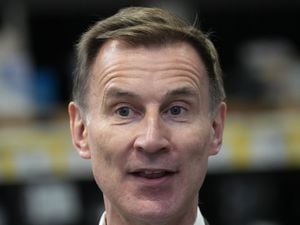‘Possibility’ Greening’s sexuality is influencing gender swap policy – activist
A spokeswoman for the Grassroots Conservatives campaign group said many who wanted to change gender are suffering from “mental health conditions”.

A leading Tory activist has said “it’s a possibility” that Government plans to make it easier to change gender have been influenced by Education Secretary Justine Greening’s sexuality.
Mary Douglas, a spokeswoman for the Grassroots Conservatives campaign group, also criticised the proposals and said many who wanted to go through the process were “deeply troubled” and suffering from “other mental health conditions”.
James Chapman, former chief of staff to Brexit Secretary David Davis, wrote on Twitter that Mrs Douglas’s comments were “disgraceful” for impugning Ms Greening’s motives for updating the legislation.
Ms Greening, who is also Equalities Minister, said at the weekend that transgender people will be able to choose their legal sex more easily as part of planned reforms.
On BBC Radio 4’s Today programme, host Nick Robinson said Ms Greening had come out as gay last year, and he asked Ms Douglas if she thought the minister’s personal experience was having an impact on Government policy.
Mrs Douglas replied: “It’s a possibility, but I’m not going to suggest anything I don’t know. I don’t know Justine personally at all.
“But the bigger issue here is not who is introducing or considering introducing, but the implications of the policy itself.”
Mrs Douglas speaks on family, religion and public life for Grassroots Conservatives, which is not affiliated to the party but draws most of its supporters from Conservative members.
The group’s website says Mrs Douglas is a Tory councillor and a member of the Salisbury Conservative Association.
Mrs Douglas said: “It should not be easy to do something as massive as change your gender.
“The law is there to protect us, normally from other people but also sometimes from ourselves, and I think many people have really profound concerns about this.
“If somebody thinks they have a mismatch between how they think and the way their body is, the question is which should be changed?
“What’s interesting I think is many people who have gender dysphoria also have – not all, but many – have other mental health conditions, like depression or drug addiction or … they’re deeply troubled.
“It has been proven that when they change their gender, that doesn’t solve those issues, so there’s an underlying issue here.”
Mrs Douglas said that while she was not a doctor, she had read medical research which said that wishing to change gender was a mental health issue, adding that that was the medical consensus until very recently “and I don’t see that anything has changed”.
She added: “It’s certainly not intended to be insulting, but if for example you have someone with anorexia who says I am too thin – too fat, sorry – and you look at them and you go ‘really you are not’, it’s not actually respectful or loving to affirm that person in a belief that is false, that doesn’t tie up with reality.”





